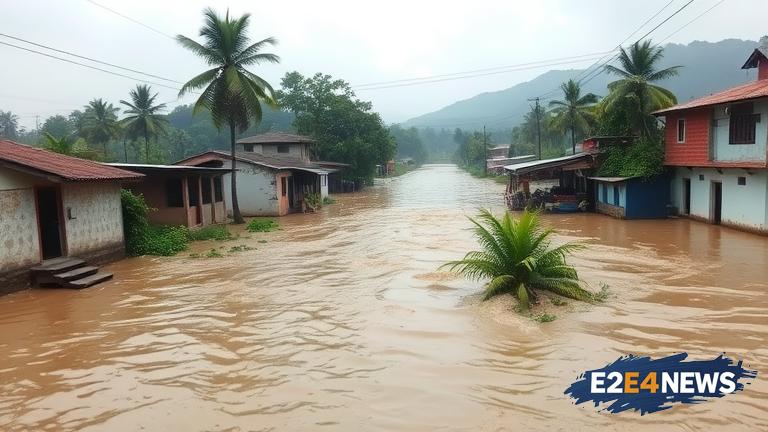Flash floods have struck northern India, resulting in the deaths of at least 4 people and trapping many others under debris. The floods, which were triggered by heavy rainfall, have caused widespread destruction and chaos in the region. The affected areas are experiencing power outages, and communication networks have been disrupted. Rescue teams are working tirelessly to reach those trapped, but the efforts are being hindered by the debris and rubble. The Indian government has deployed emergency services, including the National Disaster Response Force (NDRF), to assist in the rescue operations. The NDRF teams are equipped with specialized equipment, including boats and rescue gear, to navigate the flooded areas. The flash floods have also caused significant damage to infrastructure, including roads, bridges, and buildings. The local authorities have issued warnings to residents, advising them to stay indoors and avoid traveling to the affected areas. The Indian Meteorological Department has predicted more rainfall in the coming days, which is expected to exacerbate the situation. The government has set up relief camps to provide shelter and food to those displaced by the floods. The relief efforts are being coordinated by the local administration, with support from non-governmental organizations (NGOs) and volunteer groups. The flash floods have also affected agricultural lands, with crops being destroyed and livestock being swept away. The economic impact of the floods is expected to be significant, with losses estimated to be in the millions. The Indian government has announced plans to provide financial assistance to those affected by the floods. The situation is being closely monitored by the government, with regular updates being provided to the public. The flash floods have highlighted the need for improved disaster management and infrastructure in the region. The government has promised to take steps to prevent such disasters in the future, including investing in flood-control measures and early warning systems. The people of northern India are coming together to support those affected by the floods, with many donating food, clothing, and other essential items. The international community is also providing support, with several countries offering aid and assistance to India. The flash floods are a reminder of the importance of being prepared for natural disasters and the need for effective emergency response systems. The government and emergency services are working together to ensure that those affected by the floods receive the support they need. The situation is expected to improve in the coming days, but the road to recovery will be long and challenging.
